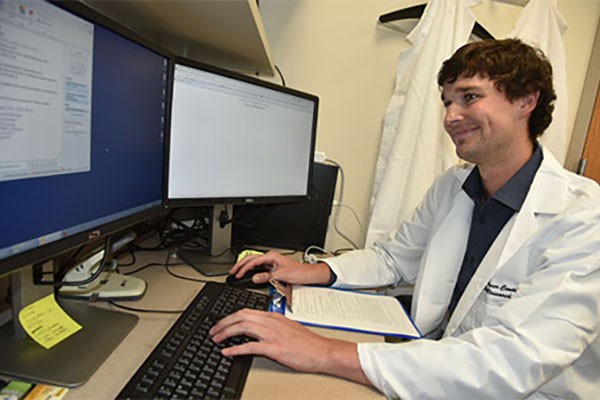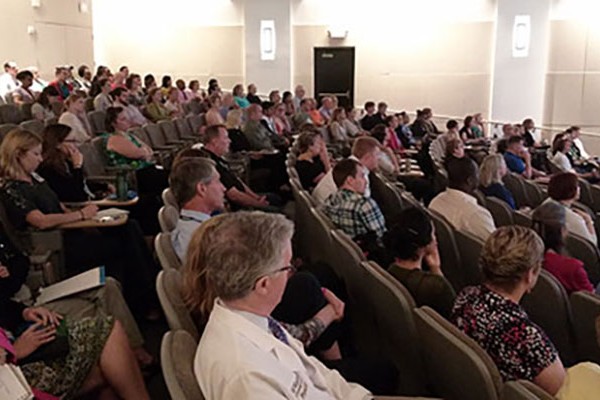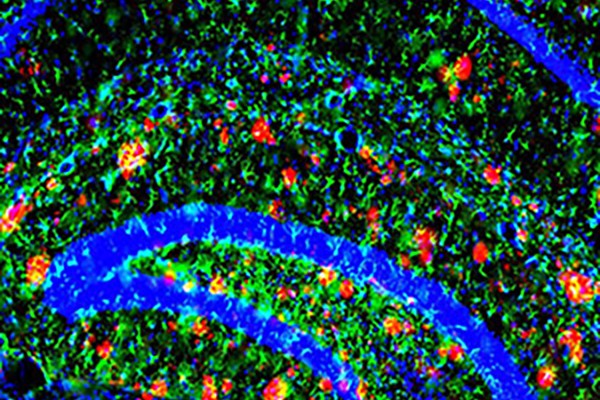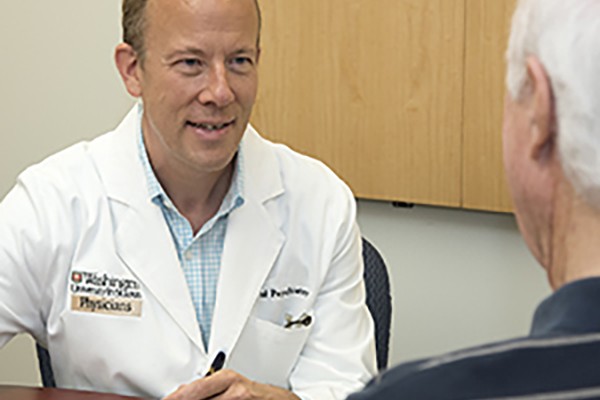New clues found to vision loss in macular degeneration
Scientists have identified a pathway that leads to the formation of atypical blood vessels that can cause blindness in people with age-related macular degeneration. The research, at Washington University School of Medicine in St. Louis, sheds light on one of the leading causes of blindness in industrialized countries and offers potential targets for treating the disease.
Washington People: Andy Maus
Andy Maus was the guy who used to alert undergraduate students via text message they had a package in the mailroom. Now he’s working as clinical research coordinator in the lab of Ravi Vij, MD. Here’s the story of how Maus went from the medical school to the mailroom — and back again.
Mann named editor-in-chief of new cardiology journal
The American College of Cardiology has named Douglas L. Mann, MD, of Washington University School of Medicine the first editor-in-chief of its newest journal, JACC: Basic Translational Research. A monthly, open-access publication, the new journal will launch its inaugural issue in December.
Medical resident Sommovilla receives award from surgical education group
Joshua Sommovilla, MD, a resident in the Department of Surgery at Washington University School of Medicine in St. Louis, has been awarded the 2015 Outstanding Resident Teaching Award by the Association for Surgical Education. He received the award at the association’s annual meeting this past spring in Seattle.
WashU Expert: Picking up the phone to improve mental health in seniors
A new study in JAMA Psychiatry shows that therapy provided via telephone for older adults in rural areas is effective in treating anxiety disorder. In an accompanying editorial, Eric J. Lenze, MD, of Washington University School of Medicine in St. Louis, wrote that the health-care system lacks the capacity to help the growing elderly population and that relying too heavily on sedative medications isn’t the answer.
Gastric bypass surgery lowers women’s alcohol tolerance
Women who have gastric bypass surgery to lose weight should keep a close eye on their alcohol consumption, according to a study at Washington University School of Medicine in St. Louis. The researchers found that changes in how alcohol is metabolized after surgery can speed its delivery into the bloodstream, resulting in earlier and higher peaks in blood-alcohol levels.
School of Medicine Executive Faculty and other leaders explore unconscious bias
During a retreat this summer on the Medical Campus, department heads, division directors and other senior leaders at Washington University School of Medicine explored unconscious bias and how to diminish its impact in medical environments.
Brain’s ability to dispose of key Alzheimer’s protein drops dramatically with age
The greatest risk factor for Alzheimer’s disease is advancing age. Researchers at Washington University School of Medicine in St. Louis have identified some of the key changes in the aging brain that lead to the increased risk. The changes center on amyloid beta 42,
a main ingredient of Alzheimer’s brain plaques.
$15 million funds research to help older adults prevent cognitive decline
Researchers at Washington University School of Medicine in St. Louis, led by Eric J. Lenze, MD, have received a $15 million grant to study strategies — including exercise, health education, meditation and yoga — aimed at helping older adults prevent or reverse typical age-related cognitive declines.
Dean honors School of Medicine staff with annual service awards
Each year, Larry J. Shapiro, MD, dean of the School of Medicine surprises employees with the highest accolades given to staff: the dean’s service awards. The top honor, the Dean’s Distinguished Service Award, this year went to Shirley R. Vaughn, of the Department of Anesthesiology. She is pictured with the dean.
View More Stories





